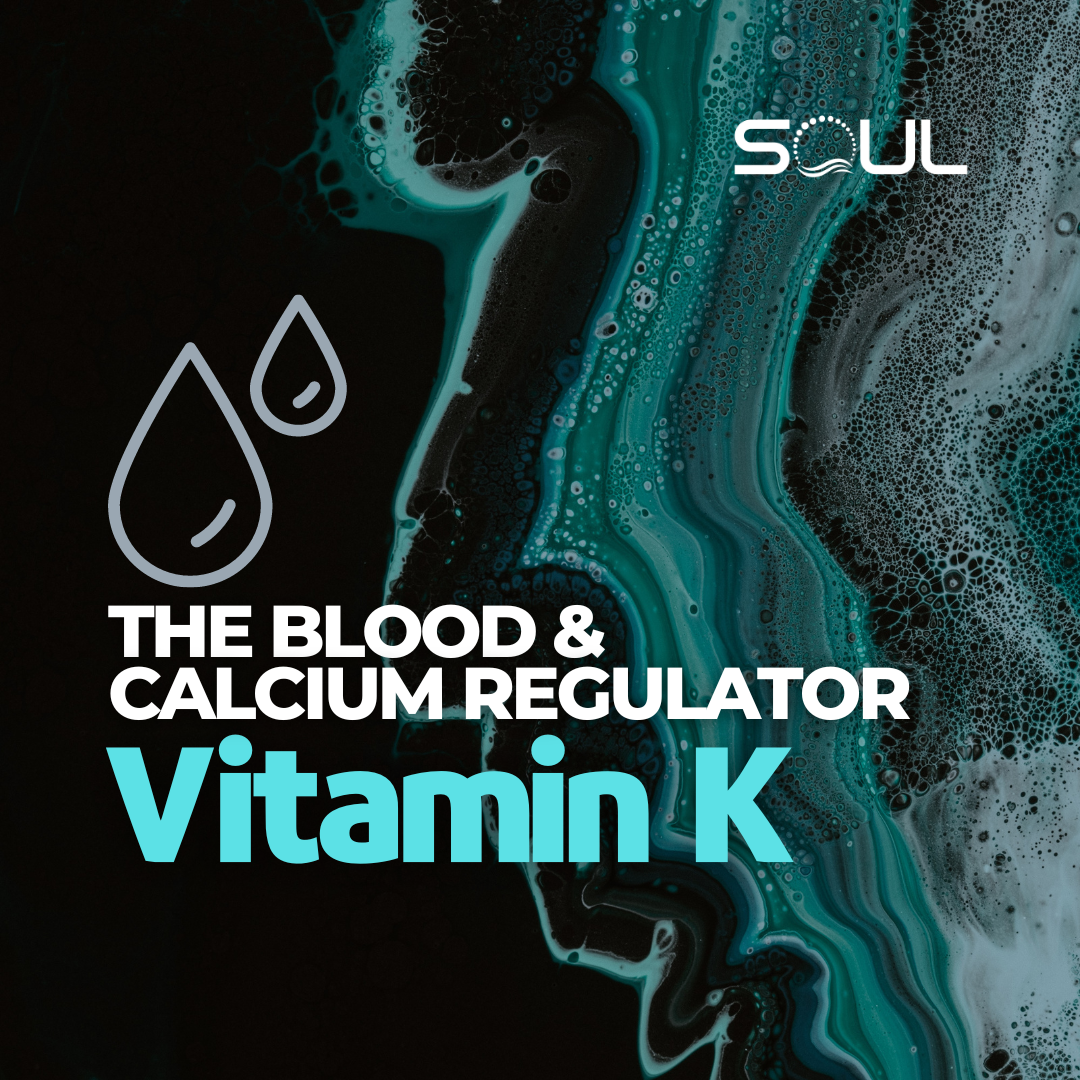
Vitamin K: The Overlooked Guardian of Blood, Bones, and Heart
When most people think of vitamins, they often rattle off the usual suspects: vitamin C for immune support, vitamin D for bone health, and maybe a nod to vitamin B12 for energy. But how often do you hear someone sing the praises of vitamin K? This underdog of the vitamin world plays a pivotal role in maintaining your body’s functionality—specifically when it comes to blood clotting, bone health, and calcium regulation. And it does so with surgical precision, like a conductor orchestrating a symphony of biochemical processes.
Let’s dive into the specifics of this powerhouse nutrient and discover why it deserves a standing ovation.
The Two Faces of Vitamin K
Vitamin K isn’t a solo act. It’s a family affair. The "K" family consists of two main forms: K1 (phylloquinone) and K2 (menaquinone). While both forms share a common role in blood coagulation, their methods and areas of operation differ significantly, almost like specialized agents in the field of health maintenance.
Vitamin K1, or phylloquinone, is primarily found in leafy greens like kale, spinach, and Swiss chard. Think of it as the body’s front-line medic, swiftly activating blood-clotting proteins to seal the wound and prevent unnecessary bleeding. Its role in blood coagulation is as fundamental as having brakes in a car—without it, even the slightest bump could lead to catastrophe.
On the other hand, Vitamin K2, or menaquinone, is like the architect of calcium regulation. It’s the master of directing calcium traffic, ensuring this essential mineral doesn’t take a detour into your arteries or soft tissues, where it could wreak havoc by forming plaque. Vitamin K2 does this with remarkable specificity, steering calcium into the bones and teeth, fortifying them for the long haul. Vitamin K2 is further divided into several subtypes based on their chemical side chains, the most potent of which is menaquinone-7 (MK-7). MK-7 has garnered attention for its ability to stay active longer in the body, offering extended support for bone and cardiovascular health.
Why Vitamin K Matters
What does all this mean for you? The short answer: a lot. Vitamin K is like the unsung hero behind several critical bodily processes that keep you functioning optimally. Here’s a breakdown of its benefits:
1. Blood Coagulation: The First Responder
When you get a cut or scrape, it’s vitamin K that rushes to the scene. It activates clotting factors—essentially the body's emergency repair crew. Without adequate vitamin K, even minor injuries could result in excessive bleeding. For individuals on blood-thinning medications or those with bleeding disorders, keeping vitamin K levels balanced is paramount to reducing risk.
2. Calcium Regulation: The Traffic Director
You don’t want calcium wandering around aimlessly in your bloodstream. That’s how plaque forms, which clogs arteries and leads to heart disease. Vitamin K2 acts like a traffic cop, signaling calcium to head straight to the bones and teeth, bypassing areas where it could do harm. Research even suggests that vitamin K2 could mitigate arterial calcification—a vital factor in preventing cardiovascular issues.
3. Bone Health: The Foundation Layer
Calcium alone isn’t enough to build strong bones; it needs proper guidance. Without vitamin K2 to usher calcium to its rightful place, bones could become porous and brittle—a condition better known as osteoporosis. Studies on menaquinone-7 (MK-7) show a marked improvement in bone density and strength, particularly in older adults. It’s akin to reinforcing the walls of a house so they can withstand the wear and tear of time.
4. Heart Health: The Silent Protector
Imagine a vitamin capable of reducing arterial calcification, a key contributor to heart disease. That’s the role vitamin K2 plays in cardiovascular health. By keeping calcium deposits away from arteries, vitamin K2 serves as a silent protector, reducing the risk of heart-related issues over the long term.
Recommended Intake: Quality Over Quantity
Given its essential role, you’d think we’d all be loading up on vitamin K. But deficiency, though rare, can occur, especially in individuals on restrictive diets or with gut imbalances that inhibit K2 production. Gut bacteria manufacture some of the menaquinones (K2), but this alone isn’t enough to meet daily needs. So, what’s the solution? A varied diet.
For Vitamin K1, leafy greens like spinach, kale, and Swiss chard should be on your plate regularly. The rule of thumb: the darker the green, the richer the K1 content.
For Vitamin K2, turn to fermented foods like natto, a traditional Japanese soybean dish that’s virtually bursting with MK-7. Cheese and other animal-derived products like eggs are also solid sources. If your diet lacks these foods, or if you have absorption issues, supplementation may be warranted—but always consult your healthcare professional first.
Final Thoughts: A Toast to Vitamin K
We’ve journeyed through the various forms and functions of vitamin K, from its blood-clotting prowess to its masterful calcium regulation. This vitamin, despite being a backstage performer, plays a critical role in the grand production of your health. Like any skilled director, it knows when to step in and ensure the show runs smoothly. So, next time you prepare a meal, consider including foods rich in vitamin K. Think of it as paying tribute to the unsung hero that keeps your blood, bones, and heart in harmonious balance.
These statements have not been evaluated by the Food and Drug Administration. This product is not intended to diagnose, treat, cure or prevent any disease. This article is for informational purposes only and is not a substitute for professional medical advice. Always consult your healthcare provider regarding any health concerns or before starting new supplements.
